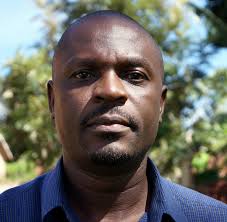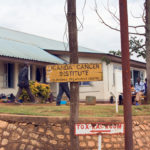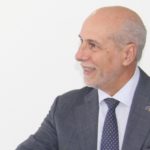By Apollo Kakaire
The Uganda civil society, especially the non-governmental organisations, are at crossroads as government continues narrowing their operational space through restriction and control. While stifling the CSO space is not new, the levels are clearly being cranked up.
In September 2017, police cordoned off offices of three NGOs; the Great Lakes Institute for Social Studies (GLISS), Action Aid Uganda and Uhuru Institute. A statement issued by Police accused the NGOs of ‘involving themselves in subversive activities’. According to police, Action Aid and GLISS were suspected to have received funding from foreign elements to facilitate protests against the proposed constitutional amendments to remove the 75-year presidential age limit. The amendment is widely viewed as a step towards ensuring that incumbent President Yoweri Museveni, 73, and in power since 1986, contests for the presidency again in 2021.
Subsequently, the bank accounts of Action Aid Uganda and GLISS, as well as personal bank accounts of some staff members, were frozen, in effect crippling the work of the organisations and individuals.
Several local organisations openly condemned the government action and called for the unconditional unfreezing of the bank accounts. These voices of support however went silent as soon as government issued a letter to 25 other NGOs, demanding their bank account details. A quick review of this list shows that they are some of the most vocal organisations in Uganda.
Historically, when the state of Uganda was the main provider of social services, CSOs consisted majorly of trade associations and cooperatives. During the colonial era, they mainly engaged in political activism and the fight against colonialism. After Independence, the state took over cooperatives and trade associations hence subsuming the relationship between the state, private sector and civil society. During the repressive regime of Idi Amin, CSOs were confined to the traditional field of service delivery especially the health sector, to fill the gap left by government. After 1986, the relative freedom and space ushered in by the NRM government saw the exponential growth of CSOs. Presently, there are about 13,000 registered NGOs according to records at the NGO Registration Bureau.
The role of NGOs has, during the current regime, grown from offering humanitarian services following the end of the Joseph Kony-led Lord’s Resistance Army war in northern Uganda, to the now stickier business of pushing for pro-democracy practices, holding government and leaders accountable and ensuring efficient and equitable service delivery.
In his book, ‘Comparative Experiences of NGO Regulatory Frameworks: Eastern and Southern Africa’, Dr. Livingstone Sewanyana notes that NGOs in East Africa “account for the most critical voices against the state. NGOs continue to play a lead role in the struggle to open up political space, advancing the cause of human rights and holding the state accountable for its actions”.
However, these activism and advocacy have been met with restrictive laws by government such as the Public Order Management Act, the amended NGO Act, the Anti-Terrorism Act; name calling and branding of NGOs as supporters of homosexuality, agents of foreign interests, and enemies of national security.
The media, a key pillar in these struggles have not been spared either. On September 26, 2017, the Uganda Communications Commission banned all live broadcasts of Parliamentary debate over the controversial motion to delete Article 102 (b) from the Constitution. The UCC Executive Director Godfrey Mutabazi claimed that live broadcasts of such events were “inciting the public, discriminating, stirring up hatred, promoting a culture of violence amongst the viewers and are likely to create public insecurity or violence.” He said any further breach would result in suspension and revocation of licenses. Indeed, some radio stations were closed down for alleged breach of ‘minimum broadcast standards’ and journalists suspended over the same.
The key question to ponder is how Uganda civil society will respond to these excesses. They have the option of sticking to ‘soft’ interventions that keep government criticism at bay, but that places a dilemma on what becomes of their visions, missions and the much need interventions in promoting democracy, education, health and good governance, among other mandates.
Perhaps there are some lessons to be learned from the industrial action by medical workers under the Uganda Medical Association. One of its key strategies has been to debunk government narrative that striking workers are unpatriotic and enemies of development as they want to divert money earmarked for infrastructural development to higher salary demands. The striking doctors in their latest November strike, reiterated that they deserve better pay, consistent stock of drugs and supply of medical supplies to effectively carry out their work. They have made headway, to a large extent.
CSOs must speak out and mobilise all possible allies to add their voices to the condemnation of these transgressions by government. They must work together by creating sector wide networks to avoid being isolated and becoming easy targets. Embracing opportunities that social media provides as a tool for mobilisation, and information dissemination is also key in protecting the precious CSO space.
Further, CSOs should deepen the ownership of their work by the communities they serve. This way, those communities can put pressure on government whenever it clamps down on an organization in their locality. However, the communities should be helped to appreciate the need to protect the whole CSO sector. Relatedly, urgent means should be devised to help local communities understand their civic rights, responsibilities and value in demanding and protecting them. This way, citizens can offer some level of protection to these organizations from highhanded government institutions and officials.
Most importantly, CSOs must explore other funding models that allow them to continue doing their work without being restricted on who can fund them, how much they can receive and what activities they can undertake. Some of those funding sources are locally available but can only be mobilised if the CSOs clearly articulate their causes. The successes of several fundraisers for the treatment of cancer patients over the last couple of years, is evidence that for the right cause and right messaging, support can be locally and quickly secured.
While the shrinking space for CSOs is a worldwide concern, deliberations must continue on how to confront this growing cancer. As Doug Rutzen, head of the International Centre for Not-for-Profit Law recently noted, since January 2012, more than 140 laws have been proposed or enacted by governments in 65 countries around the world to restrict the registration, operation, and funding of NGOs.
The stakes have been raised and short of a strategic response, Ugandan NGOs and civil society generally, will continue to concede invaluable space to an increasingly ‘suppressive’ regime.
Mr Kakaire is ACME’s Communication and Advocacy Manager







